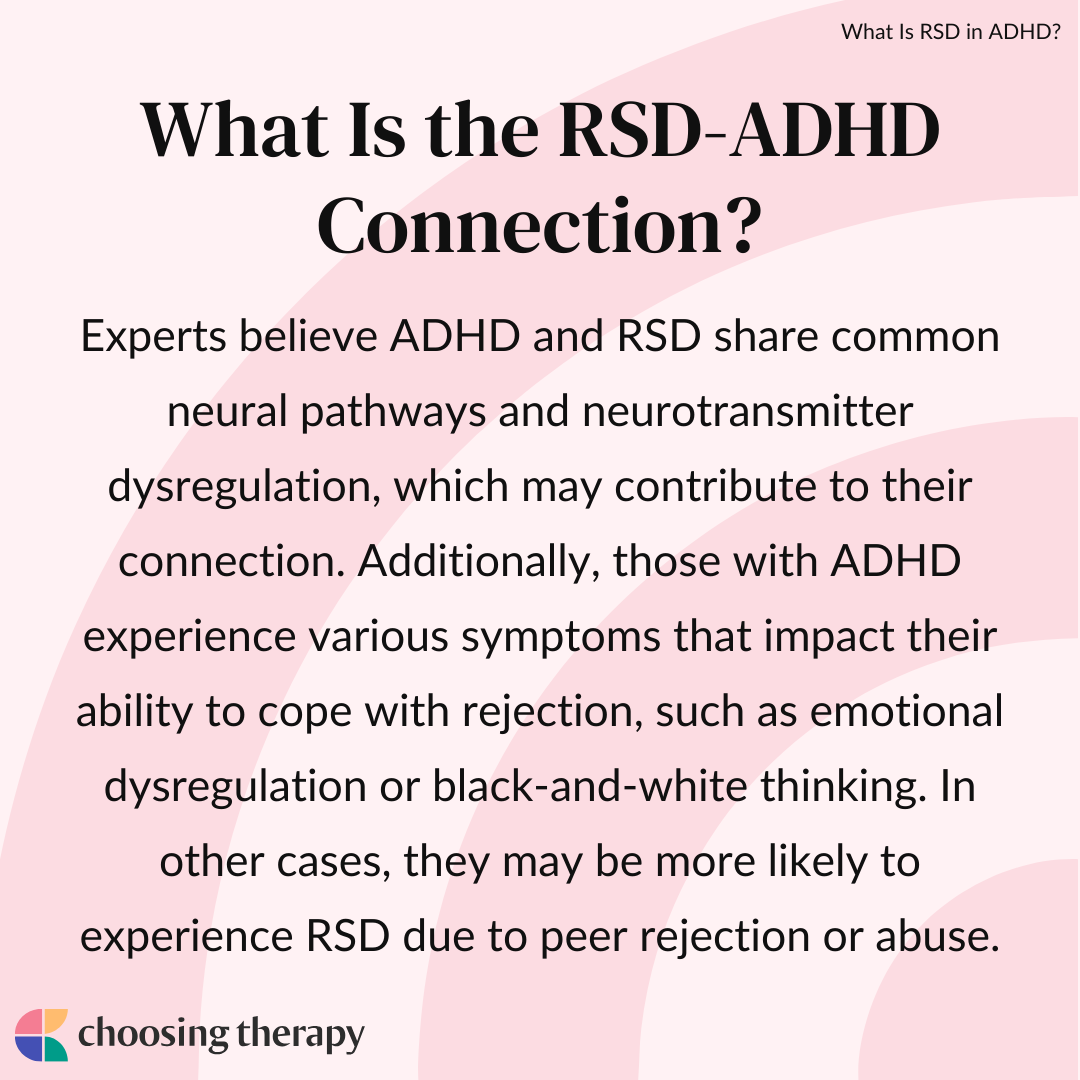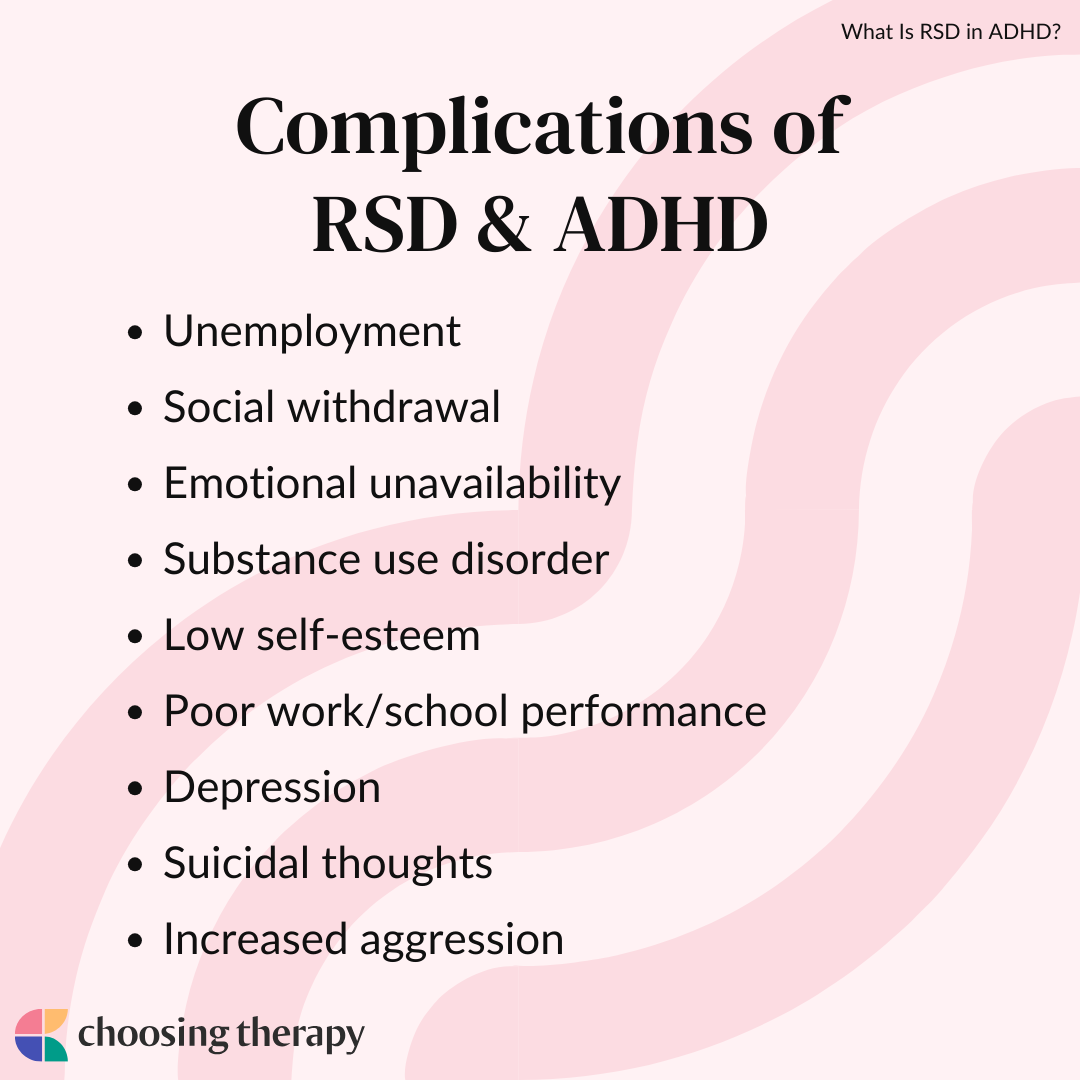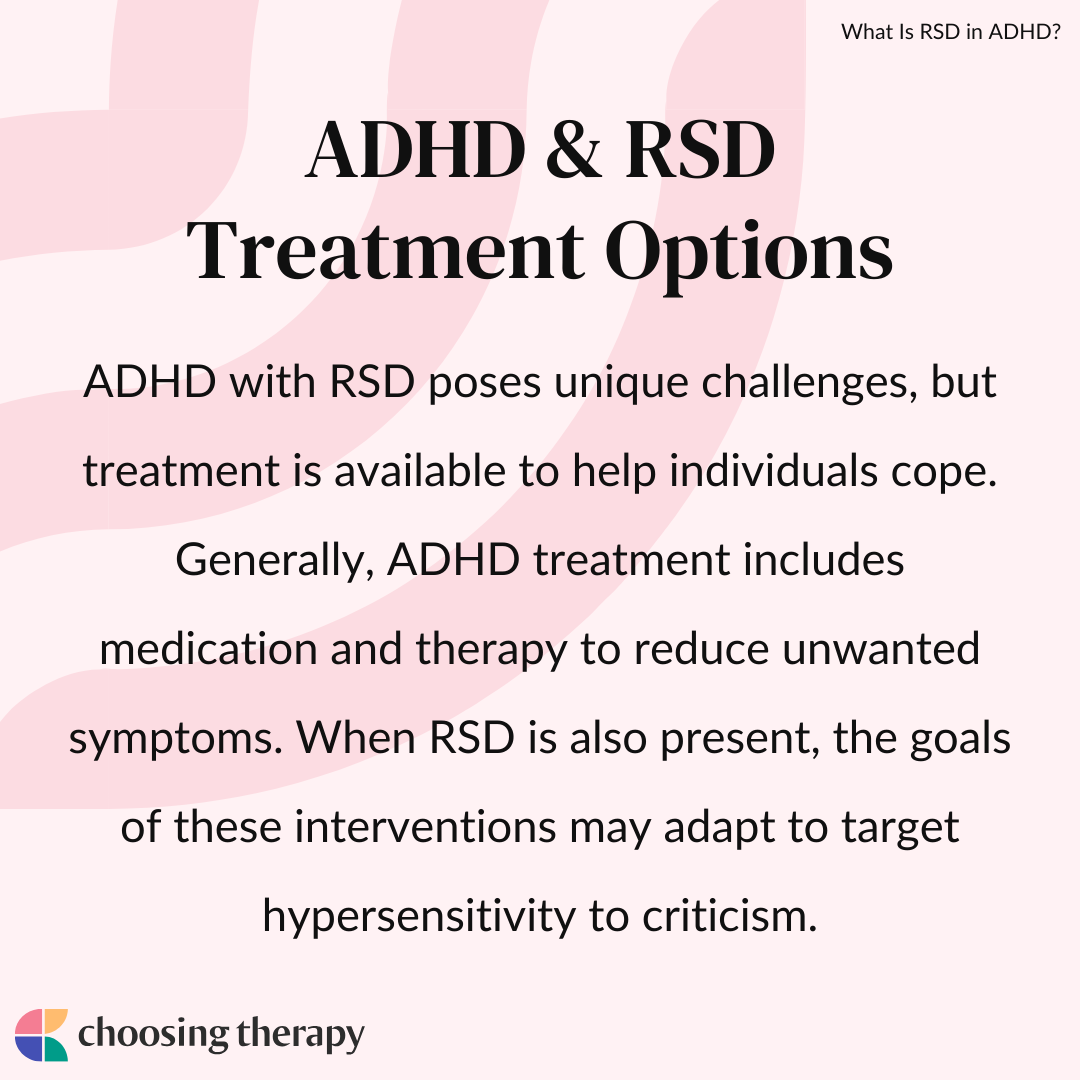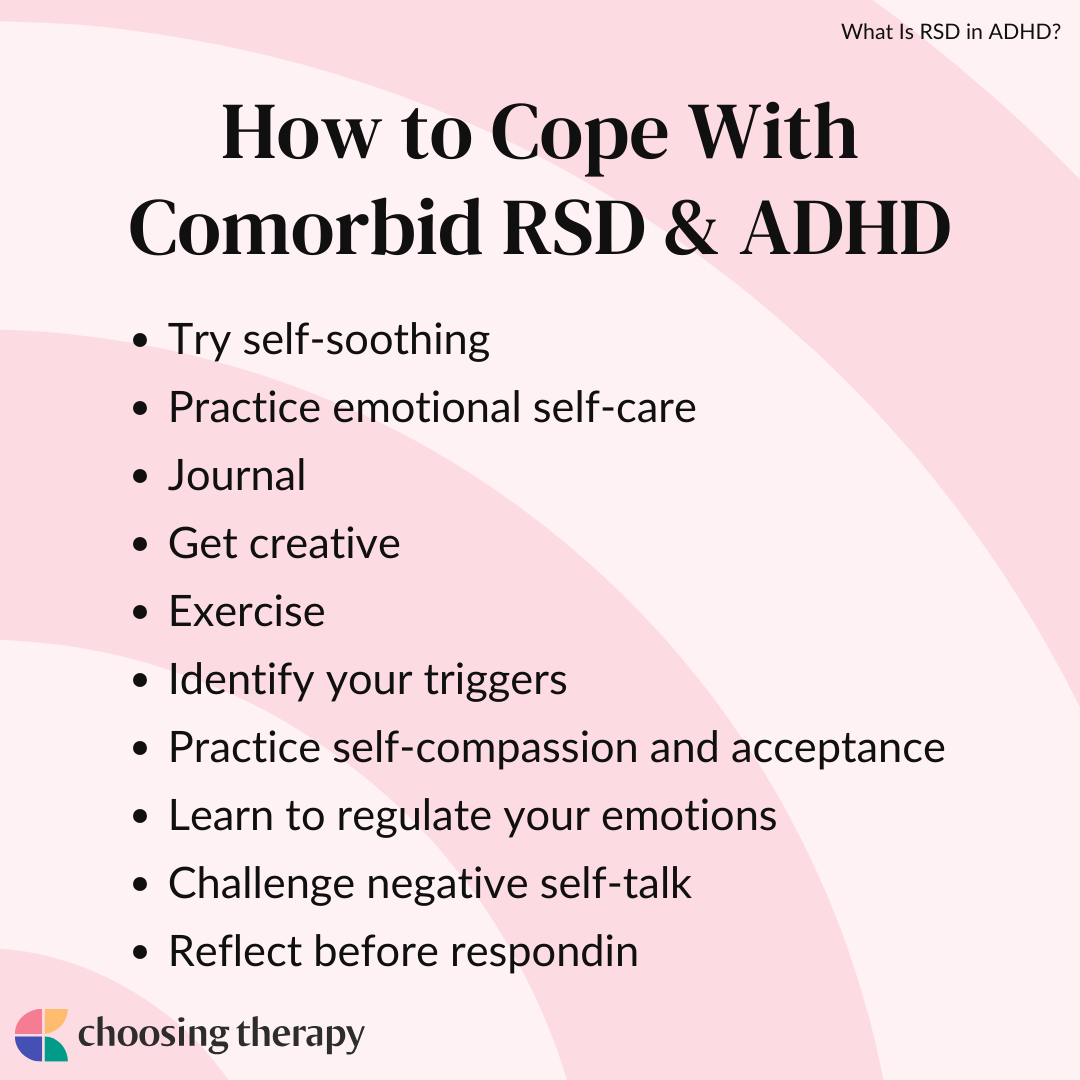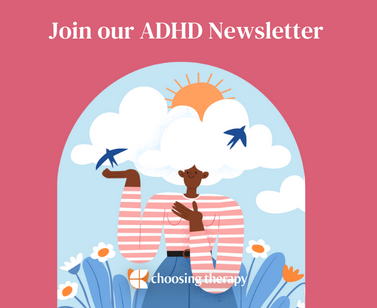RSD and ADHD often occur together, with each experience feeding into the other. People with ADHD may respond with extreme anxiety, distress, or aggression when facing rejection for many reasons, particularly emotional dysregulation. Past instances of neglect or trauma can also contribute to RSD in those with ADHD, along with heightened sensitivity to stress, peer rejection, and brain differences.
Online Psychiatry For ADHD Covered By Insurance
Talkiatry can match you with a real psychiatrist who takes your insurance and is seeing new patients. They’re in-network with major insurers and offer medication management. Get started with a short online assessment
For a quick summary of the connection between RSD and ADHD, check out this video from Kristen Souza, LMHC:
What Is Rejection Sensitive Dysphoria (RSD)?
Rejection sensitivity dysphoria (RSD) is an intense emotional reaction to actual or perceived rejection, disapproval, or criticism. RSD is not a formal diagnosis but is a symptom of different mental health disorders, most notably ADHD. However, people can experience RSD without ADHD or another comorbid condition.
RSD can impact life in many ways and contribute to various issues, such as social anxiety, attachment difficulties, trust issues, and depression. Signs of rejection sensitive dysphoria can present as mild, moderate, or severe, depending on the situation and context. Some RSD symptoms can resemble mood disorders, anxiety disorders, and even personality disorders.
Common rejection sensitive dysphoria symptoms include:
- Fear of failure
- Low self-esteem
- A chronic fear of rejection
- Catastrophizing small rejections
- High expectations of oneself
- Avoidance of social situations
- Perfectionism
- Approval-seeking behavior
- Aggression in social situations
- Feelings of hopelessness or helplessness
- Increased anxiety in new social situations
- Malicious and vindictive responses to rejection
- Physical symptoms of anxiety (i.e., restlessness, stomach upset)
- Emotional outbursts
What Is ADHD?
Attention-deficit hyperactivity disorder (ADHD) is a neurodevelopmental condition that affects attention, hyperactivity, and impulse control. Symptoms of ADHD typically develop in childhood and persist into adulthood. However, symptoms often change and fluctuate, meaning some may dissipate or intensify as children age.
Symptoms of ADHD can present as primarily hyperactive/impulsive, inattentive, or combined ADHD. These symptoms may overlap with other conditions on the neurodiversity spectrum, including autism, obsessive-compulsive disorder (OCD), and Tourette’s syndrome.
Common symptoms of ADHD include:
- Difficulty starting or completing tasks
- Emotional dysregulation
- Mood swings
- Sensory sensitivities
- Executive dysfunction
- Hyperfixation
- Fidgeting
- Restlessness
- Difficulty organizing tasks
What Is the RSD-ADHD Connection?
Experts believe ADHD and RSD share common neural pathways and neurotransmitter dysregulation, which may contribute to their connection. Additionally, those with ADHD experience various symptoms that impact their ability to cope with rejection, such as emotional dysregulation or black-and-white thinking. In other cases, they may be more likely to experience RSD due to peer rejection or abuse.
Emotional Dysregulation
Emotional dysregulation refers to difficulties in managing and expressing emotions healthily and adaptively. Those with ADHD tend to overreact to emotional stimuli, such as rejection or criticism. In turn, they may experience the extreme anxiety associated with RSD when someone questions them or disapproves of their actions.
Genetic Factors
Genetic factors may play a role in the connection between RSD and ADHD, particularly the oxytocin receptor gene. Oxytocin is a hormone that plays a crucial role in social bonding, trust, and emotional regulation. When dysregulated, the oxytocin receptor gene can impair the ability to manage emotions, thus contributing to heightened responses to criticism or rejection.
Early Trauma
Children with ADHD who experience neglect or abandonment are at a higher risk of developing RSD later in life. Constantly hearing they are “less than,” unworthy, or burdensome can contribute to low self-esteem, self-doubt, and self-criticism. Childhood trauma can also contribute to abandonment issues and a painful response to rejection.
Prolonged Social Rejection
Experiencing prolonged social rejection or bullying can significantly impact mental and emotional well-being. People with ADHD may be more vulnerable to such rejection due to their symptoms. This constant negative feedback and exclusion from peers can lead to the intense and extreme sensitivity seen in RSD.
Heightened Sensitivity to Stress
Heightened sensitivity to stress is a common characteristic among individuals with ADHD. They may experience a more intense physiological and emotional response to difficult situations, including rejection.
Black & White Thinking
Black-and-white (dichotomous) thinking involves seeing things in extreme, all-or-nothing terms without recognizing gray areas or complexity. For example, when met with criticism, individuals with ADHD may see themselves as “all bad” because a person disapproves of one behavior or characteristic. Or, they may struggle to find the middle ground during conflict, leading to heightened frustration, disappointment, and self-criticism.
Navigating a Neurotypical World
Navigating a neurotypical world can pose unique challenges for individuals with ADHD, as society often operates on norms and expectations that misalign with their neurodivergent traits. People with ADHD may fear rejection if they fail to conform to this mold, leading to extreme anxiety and avoidance of feedback or criticism.
Complications of RSD & ADHD
RSD and ADHD can present unique challenges for individuals. Complications can become more complex when these conditions co-exist, leading to increased emotional dysregulation and lower self-esteem. Heightened sensitivity to perceived criticism can further impact the ability to manage emotions and maintain healthy relationships. Communication, therapy, and targeted interventions that address both RSD and ADHD are crucial in navigating these complications and developing effective coping strategies.
People with RSD and ADHD may have a heightened risk of:
- Unemployment: An immense emotional response to constructive feedback or criticism in the workplace can result in job loss and difficulty finding new employment.
- Social withdrawal: People who feel inherently unlikeable or “othered” may withdraw from loved ones or peers to avoid the risk of further rejection.
- Emotional unavailability: Fears of rejection can result in emotional unavailability. People with RSD will often reject others to avoid rejection themselves.
- Substance use disorder: Coping with RSD can be difficult. Those with ADHD and RSD may use drugs or alcohol to self-medicate, possibly leading to a substance use disorder.
- Low self-esteem: People with ADHD and RSD often feel a sense of failure or inadequacy, thus impacting their self-worth and self-esteem.
- Poor work/school performance: Some individuals may feel overly anxious about their academic or occupational achievement, leading to decreased productivity or increased procrastination.
- Depression: Constantly feeling inadequate can lead to symptoms of depression.
- Suicidal thoughts: Suicidal ideation can be a severe complication of ADHD and RSD, particularly if someone also experiences trauma, substance use, or other mental health conditions.
- Increased aggression: People with ADHD and RSD may respond to criticism with intense aggression or anger. Unfortunately, this behavior can further impact their relationships and ability to regulate emotions.
Get Help For ADHD
Talkiatry can match you with a real psychiatrist who takes your insurance and is seeing new patients. They’re in-network with major insurers and offer medication management. Get started with a short online assessment
Inflow App – Inflow is the #1 science-based app to help you manage your ADHD. Their support system helps you understand your neurodiverse brain, and build lifelong skills. Free Trial
How Are RSD & ADHD Diagnosed?
Because RSD is not a specific mental health condition, a professional cannot offer a diagnosis. However, those exhibiting symptoms of either RSD or ADHD can seek psychological testing from a qualified psychologist or psychiatrist.
A licensed professional can assess for ADHD symptomology to determine if a person meets diagnostic criteria. From there, they can ask the individual about their experiences with rejection and criticism to determine if they also struggle with RSD. The provider and client can work together to develop a treatment plan geared toward improving ADHD symptoms and emotional regulation.
ADHD & RSD Treatment Options
ADHD with RSD poses unique challenges, but treatment is available to help individuals cope. Generally, ADHD treatment includes medication and therapy to reduce unwanted symptoms. When RSD is also present, the goals of these interventions may adapt to target hypersensitivity to criticism.
Medications for RSD & ADHD
medication for rejection sensitive dysphoria, Medication for RSD,
While a specific medication for RSD does not exist, several ADHD medications are available for those managing both experiences. Medications come with the risk of adverse side effects but can significantly improve symptom management. Always consult your doctor before pursuing any kind of medication regime.
Medications for ADHD and RSD may include:
- Stimulants: Stimulants increase neurotransmitters in the brain to promote focus and reduce hyperactivity. Stimulants can also help manage symptoms related to RSD, such as impulsivity and emotional dysregulation.
- Non-stimulants: Non-stimulant medications can be an alternative for individuals who do not respond well to stimulants or experience intolerable side effects.
- Antidepressants: Antidepressants, such as selective serotonin reuptake inhibitors (SSRIs), can address symptoms commonly associated with RSD, such as depression and anxiety. These medications can help stabilize mood, reduce emotional sensitivity, and improve overall well-being in individuals with RSD and ADHD.
Therapy for RSD & ADHD
Therapeutic methods for treating RSD with ADHD focus on identifying how each experience influences the other. Therapy can also help individuals learn emotional regulation and social skills to improve overall functioning and well-being.
A provider specializing in ADHD understands the unique difficulties associated with ADHD to provide valuable insights into navigating your diagnosis. An excellent place to start would be to find a neurodiversity-affirming therapist, whether through a doctor referral or local resources. You can also search an online therapist directory.
Therapy for comorbid ADHD and RSD may include:
- Cognitive behavioral therapy (CBT): CBT for ADHD focuses on understanding your perception of rejection, criticism, and disapproval. From there, you can learn how RSD impacts your responses to others and develop healthier alternatives.
- Family therapy: Family therapy can help individuals communicate with their families about their experiences with criticism, rejection, and disapproval. This mutual support can aid the person as they seek self-improvement.
- Acceptance and commitment therapy (ACT): ACT focuses on mindfulness to help the individual accept their reality and develop strategies to improve their overall well-being one day at a time.
- Dialectical behavior therapy (DBT): DBT can be used to treat emotional dysregulation associated with ADHD and RSD. DBT incorporates mindfulness and CBT to encourage self-reflection before responding to criticism or rejection.
- Eye movement desensitization and reprocessing therapy (EMDR): EMDR can reduce the anxiety associated with ADHD and RSD. EMDR is a short-term treatment that targets how the brain responds to certain situations.
How to Cope With Comorbid RSD & ADHD
Developing healthy coping mechanisms is essential when living with RSD and ADHD. In addition to seeking treatment, consider journaling, regular exercise, and creative activities. Delving into your hobbies and interests can provide much-needed dopamine boosts when feeling low, especially during emotional overwhelm.
Below are tips for coping with RSD and ADHD:
- Try self-soothing: Self-soothing is a way to improve our emotional state without the assistance of others. These practices could look like progressive muscle relaxation, meditation for ADHD, and the square breathing technique.
- Practice emotional self-care: Emotional self-care can include talking to a friend, setting boundaries, or honoring your needs. Whichever method you choose, protecting your emotional well-being can improve how you respond to others.
- Journal: Journaling for your mental health is a way to connect with your emotions and safely process them. Journaling can help with rumination, perseveration, and feeling stuck in a problem.
- Get creative: Creativity helps us process our emotions without verbal communication. Consider exploring the arts, music, dance, or cooking.
- Exercise: Exercise does not need to be intense to reap the benefits. Finding 15-30 minutes daily to move your body can increase serotonin, endorphins, and dopamine.
- Identify your triggers: Identifying your triggers is essential when managing both RSD and ADHD. Doing so can help you develop strategies to cope with these stressors.
- Practice self-compassion and acceptance: Being kind to yourself, accepting your strengths and weaknesses, and acknowledging that everyone makes mistakes can reduce self-criticism and build resilience.
- Learn to regulate your emotions: Techniques like deep breathing, mindfulness, and grounding exercises can help you better manage and control intense emotions when met with criticism.
- Challenge negative self-talk: Challenging negative self-talk involves recognizing and refuting unhelpful thoughts and beliefs about yourself. Replacing self-doubt with positive alternatives can improve your self-esteem and reduce the impact of RSD and ADHD.
- Reflect before responding: Self-reflection can help individuals with RSD and ADHD avoid impulsive reactions. Consider the situation, possible consequences, and alternative responses to create more thoughtful and controlled interactions.
In My Experience
Additional Resources
To help our readers take the next step in their mental health journey, Choosing Therapy has partnered with leaders in mental health and wellness. Choosing Therapy is compensated for marketing by the companies included below.
Online Therapy
BetterHelp Get support and guidance from a licensed therapist. BetterHelp has over 20,000 therapists who provide convenient and affordable online therapy. Complete a brief questionnaire and get matched with the right therapist for you. Get Started
Virtual Psychiatry
Hims / Hers If you’re living with anxiety or depression, finding the right medication match may make all the difference. Connect with a licensed healthcare provider in just 12 – 48 hours. Explore FDA-approved treatment options and get free shipping, if prescribed. No insurance required. Get Started
Reduce Drinking
Sunnyside Want to drink less? Sunnyside helps you ease into mindful drinking at your own pace. Think lifestyle change, not a fad diet. Develop new daily routines, so you maintain your new habits for life. Take a 3 Minute Quiz
Mental Health Newsletter
A free newsletter from Choosing Therapy for those interested in mental health issues and fighting the stigma. Get helpful tips and the latest information. Sign Up
Do you think you have ADHD? Answer an evidence-based questionnaire for Circles Medical to learn more. Takes 45 seconds.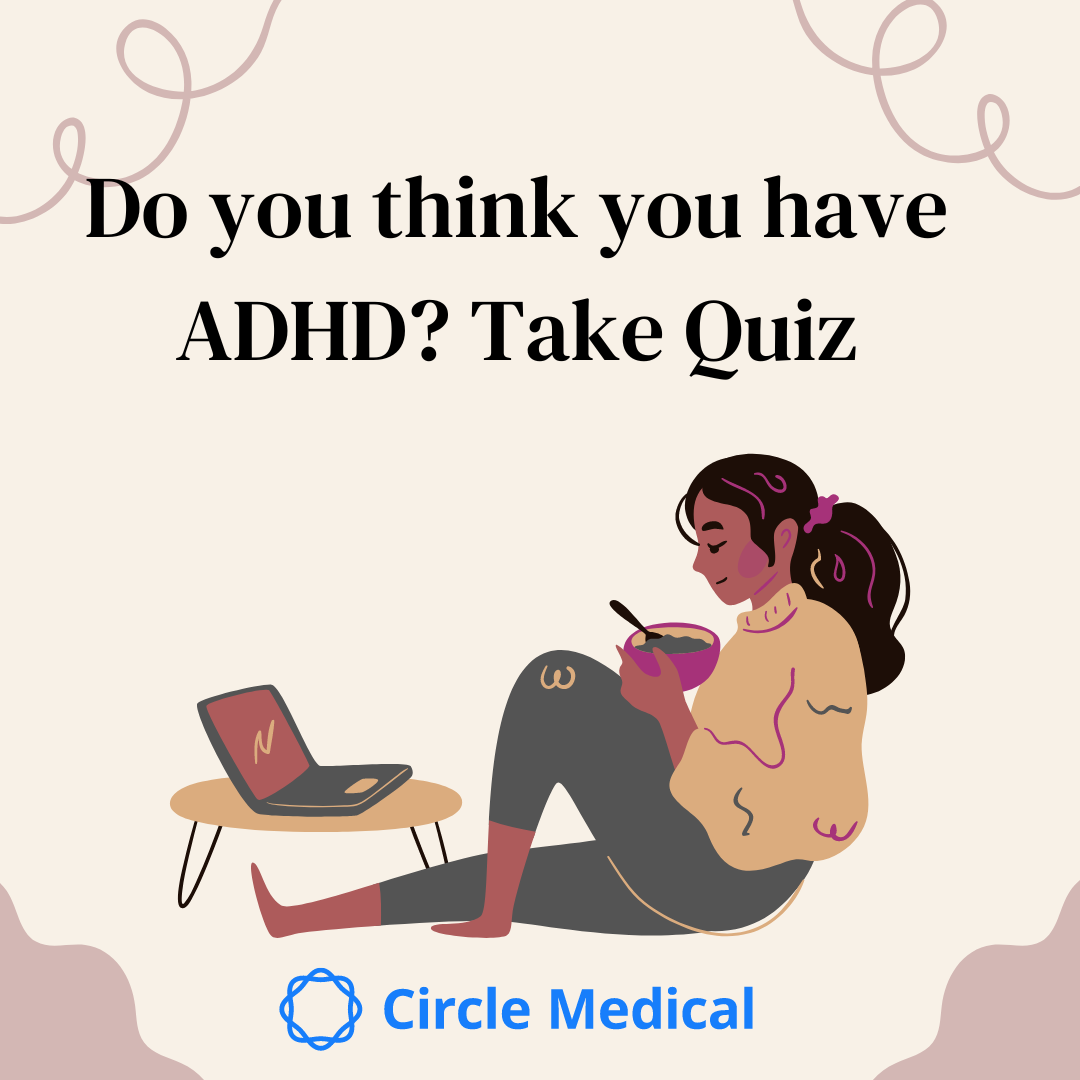
Best Online Psychiatry Services Online psychiatry, sometimes called telepsychiatry, platforms offer medication management by phone, video, or secure messaging for a variety of mental health conditions. In some cases, online psychiatry may be more affordable than seeing an in-person provider. Mental health treatment has expanded to include many online psychiatry and therapy services. With so many choices, it can feel overwhelming to find the one that is right for you.
What Is RSD in ADHD? Infographics
